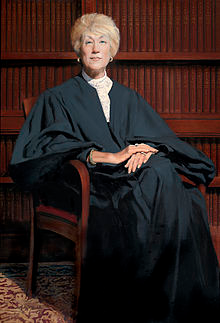The Judge in the Most Famous eDiscovery Case is Retiring: eDiscovery Trends

If you follow eDiscovery, you probably have heard of the Zubulake case, which is probably the most famous case in eDiscovery. The judge from that case — Shira A. Scheindlin of the U.S. District Court for the Southern District of New York – is retiring effective April 29.
In a letter announcing her retirement last Wednesday, Scheindlin, 69, said she will join a “large” New York City law firm, but plans to spend most of her time working on alternative dispute resolution (ADR) matters. In the letter Judge Scheindlin stated the following:
“After 21.5 years of service on the district court, I have decided to leave the bench as of April 29, 2016. These have been the best years of my life in which I have had the pleasure of working with wonderful colleagues and the opportunity to work on many important and interesting cases. While I will no doubt miss both the work and my colleagues, I am looking forward to taking on new challenges in the private sector. I plan to spend the bulk of my time on ADR matters including work as an arbitrator and mediator and in other neutral capacities – with the hope of doing a fair amount of public interest work as well as working on commercial matters. I will also become of counsel to a large New York City law firm where I anticipate assisting in client and pro bono matters, teaching and mentoring associates, and engaging in public speaking and writing. I thank you all for your friendship and support over the past years and hope to work together again in other capacities.”
In the Zubulake v. UBS Warburg case, Scheindlin issued key rulings that included classification of accessible vs. inacessible data and a new seven factor balance test for cost-shifting of discovery costs, among other precedents. Another groundbreaking case from an eDiscovery standpoint was Pension Committee of the Montreal Pension Plan v. Banc of America Securities, LLC, where, in her ruling where she issued sanctions against the plaintiffs, Scheindlin defined negligence, gross negligence, and willfulness from an eDiscovery standpoint.
Along with Daniel Capra, Scheindlin also published a book in 2009, The Sedona Conference’s Electronic Discovery and Digital Evidence in a Nutshell, which addresses several issues related to the use of electronic information in litigation.
In addition to her noteworthy eDiscovery rulings and teachings, Scheindlin also made impact in other areas, including ordering the NYPD to reform its stop-and-frisk policing policy in 2013 and, earlier this year, ordering the SEC to return $21.5 million from an insider trading settlement paid by Level Global Investors Ltd. and another $9 million to a hedge fund in the same case. She also approved a class-action antitrust settlement between sports fans and Major League Baseball over pay-TV game broadcasts.
As noted above, Scheindlin told colleagues in her letter that she will join the firm to assist in client and pro bono matters, and to mentor and teach associates. Lucky associates!
So, what do you think? Will her legacy influence the decisions of other judges going forward? Please share any comments you might have with us or let us know if you’d like to know more about a particular topic.
Disclaimer: The views represented herein are exclusively the views of the author, and do not necessarily represent the views held by CloudNine. eDiscovery Daily is made available by CloudNine solely for educational purposes to provide general information about general eDiscovery principles and not to provide specific legal advice applicable to any particular circumstance. eDiscovery Daily should not be used as a substitute for competent legal advice from a lawyer you have retained and who has agreed to represent you.







